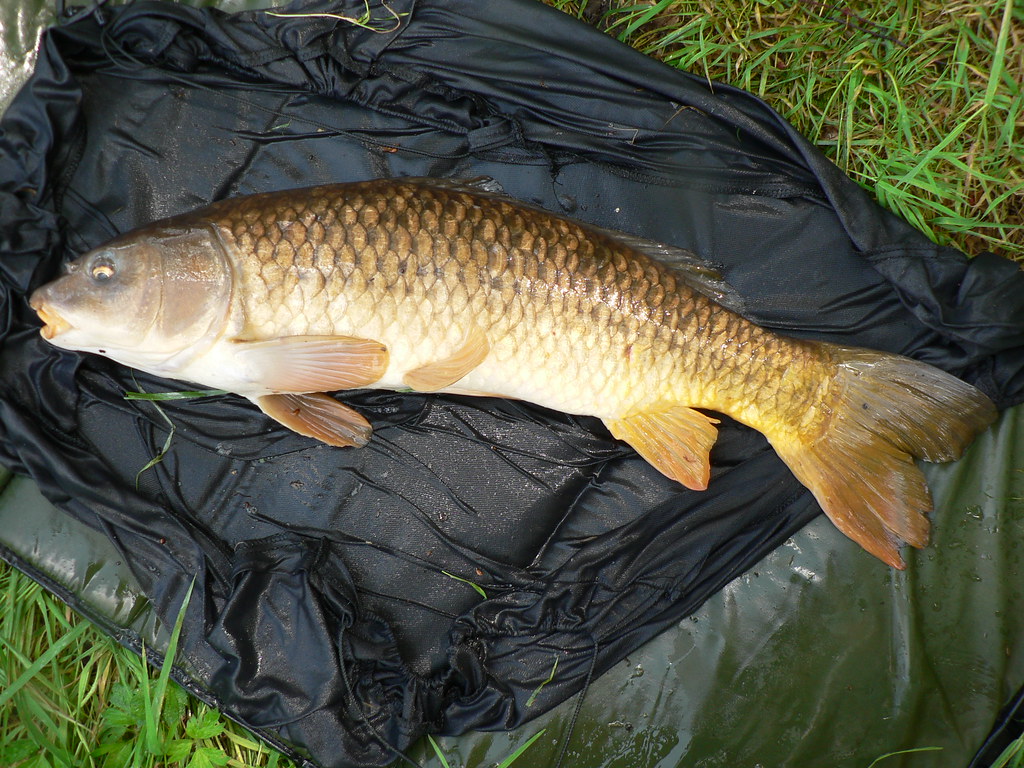SCORES & OUTDOORS: Are there carp in Webber Pond; affect of climate change on our lakes
 by Roland D. Hallee
by Roland D. Hallee
Earlier this summer, in a Facebook post, I saw where someone suggested there might be carp in Webber [Pond], based on a conversation with an angler.
Carp have long been an important food fish to humans. Several species such as the various goldfish breeds and the domesticated common carp variety have been popular ornamental fishes. As a result, carp have been introduced to various locations, though with mixed results. Several species of carp are considered invasive species in the United States, and, worldwide, large sums of money are spent on carp control.
At least some species of carp are able to survive for months with practically no oxygen (for example under ice or in stagnant, scummy water) by metabolizing glycogen to form lactic acid which is then converted into ethanol and carbon dioxide. The ethanol diffuses into the surrounding water through the gills.
I reached out to Jason Seiders of Inland Fish and Wildlife about it and to follow up on the lab results from the spring fish kill. Here is his response:
“Maine does have carp – common carp, not the Asian carp that they deal with in the Midwest. Common carp are numerous (and invasive) in the lower Kennebec River which makes them an ever-present threat to Webber. Carp feed by stirring up sediment and they do it on a large scale. It would be very evident if carp were in Webber because you would see them feeding in near shore areas; the plumes of sediment would stand out as well as the large fish themselves. I’m not sure who said they were in Webber, but we’ve never seen nor heard of one, or seen evidence of them in the pond. I think it’s wise to keep the fishway closed when alewives are not present (we do) because that would be the most likely vector for introduction. Common carp would make an already bad water quality situation far worse!”
Speaking of water quality, here is some interesting information from Maine Lakes and Maine Public Radio on the impact of climate change on Maine’s lakes:
– The risks to the future health of our lakes in Maine and beyond are growing due to climate change.
– Warming air and water temperatures coupled with earlier ice-out are lengthening the growing season for algae and invasive aquatic plants.
– More frequent and intense storms deliver more rain over a shorter period of time, increasing stormwater runoff and worsening soil erosion that carries phosphorus and other nutrient-laden sediments into lakes.
– Periods of drought between storms can alter soil structure, making soils less stable and more likely to erode in the next big storm.
– Excess nutrients from eroding soils along with warmer water make lakes more hospitable to the explosive growth of algae, resulting in extensive algal blooms that put lake health in jeopardy.
– Some of those blooms may be classified as “harmful algal blooms” (or HAB’s) that produce toxic or harmful effects on people, pets, and wildlife.
Fortunately, there are many organizations working on climate change impacts and ways our communities can become more resilient to these changes.
Recently, Maine Public published a series on that subject, in one of the articles they reported:
“On a forested path from a seasonal camp down to Great Pond, in Belgrade, a small, but critical construction project is underway.
“A trio of workers from the Youth Conservation Corps struggled to dig a shallow trench. Once they remove the stubborn roots and rocks, it will be lined with gravel and mulch.
“The upgraded path doesn’t look like much, but looks can be deceiving, said Max Comis, a junior at the University of Maine and worker on the crew.
“‘The mulch and the rocks we’re going to put on top of this, it’s going to filter the water. We have further filtration below it, and it is going to stop the bad things from going into the water,” Comis said.
“Human-caused climate change is overheating Maine’s lakes and ponds, changing their biology and threatening their health.”
Much work still needs to be done before we can restore our lakes, as is witnessed by on-going projects in China Lake, Three-mile Pond and Webber Pond.
Roland’s trivia question of the week:
Who is the all-time leading goal scorer for the Boston Bruins, Phil Esposito, Bobby Orr, Johnny Bucyk or Patrice Bergeron?
Responsible journalism is hard work!
It is also expensive!
If you enjoy reading The Town Line and the good news we bring you each week, would you consider a donation to help us continue the work we’re doing?
The Town Line is a 501(c)(3) nonprofit private foundation, and all donations are tax deductible under the Internal Revenue Service code.
To help, please visit our online donation page or mail a check payable to The Town Line, PO Box 89, South China, ME 04358. Your contribution is appreciated!



Leave a Reply
Want to join the discussion?Feel free to contribute!